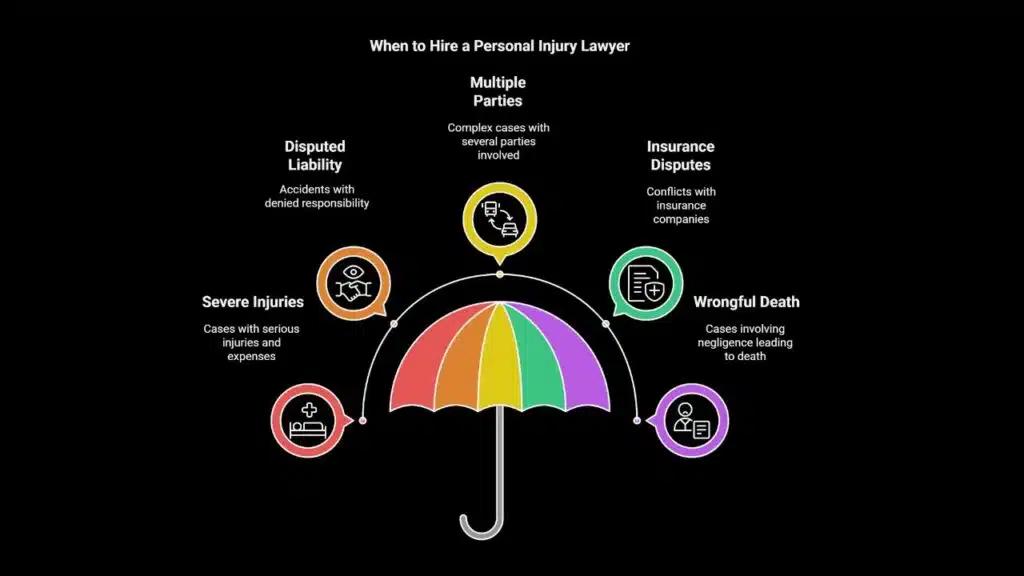In 2019, nearly 27 million people required medical treatment for a personal injury in the US, costing the US economy $4.2 trillion. Suffering an injury due to someone else’s negligence can be a life-altering event. Not only are you dealing with the pain and injuries, but you somehow must find the money to pay for your treatment while possibly being out of work. In the aftermath of such an incident, many people wonder whether hiring a personal injury attorney is the right course of action. Is it truly worth the time and expense?
Understanding the Role of a Personal Injury Lawyer
Personal injury lawyers specialize in representing individuals who have been injured due to the negligence or wrongful actions of another party. They help their clients obtain fair compensation for their losses, which can include lost income, medical bills, pain and suffering, and other damages. They handle a wide range of cases, including car accidents, slip and falls, medical malpractice, product liability, and workplace injuries—there were around 2.6 million non-fatal workplace injuries and illnesses reported in 2023.
The Benefits of Hiring a Personal Injury Lawyer
- Navigating Complex Legal Procedures: The legal system can be intricate and confusing, especially for someone unfamiliar with its processes. Personal injury lawyers understand the relevant laws, statutes of limitations, and court procedures. They can guide clients through each step, ensuring that all necessary paperwork is filed correctly and deadlines are met.
- Leveling the Playing Field: Insurance companies have significant resources and teams of lawyers dedicated to minimizing payouts. A personal injury lawyer acts as an advocate for the injured party, leveling the playing field and ensuring that their rights are protected. They will handle all communications with the insurance company, preventing clients from inadvertently saying or doing something that could jeopardize their claim.
- Maximizing Compensation: A personal injury lawyer will thoroughly investigate the accident, gather evidence, and build a strong case to maximize the client’s compensation. They understand how to value a claim, considering not only current expenses but also future medical needs, lost earning capacity, and non-economic damages, such as pain and suffering.
- Negotiation and Litigation: Personal injury lawyers are skilled negotiators. They will attempt to reach a fair settlement with the insurance company out of court. Estimates suggest that around 95% of personal injury cases are resolved through settlements before reaching trial. However, if a settlement cannot be reached, they are prepared to take the case to trial and represent their client’s interests before a judge and jury.
- Reduced stress: Having legal representation allows clients to focus on their recovery instead of the intricate legal process.
When is a Personal Injury Lawyer Essential?
While some minor injury cases may be handled without legal representation, certain situations almost always warrant hiring a lawyer. These include:
- Severe Injuries: Cases involving serious injuries, long-term disabilities, or significant medical expenses require the expertise of a lawyer to ensure adequate compensation. For example, there were over 214,000 traumatic brain injuries (TBI) reported in 2020.
- Disputed Liability: If the other party denies responsibility for the accident, a lawyer can help gather evidence and build a strong case to prove fault.
- Multiple Parties Involved: Accidents involving multiple vehicles or parties can be complex, making it crucial to have a lawyer to navigate the legal intricacies.
- Insurance Company Disputes: If the insurance company is denying the claim, offering a low settlement, or acting in bad faith, a lawyer can advocate for the client’s rights.
- Wrongful Death: Cases involving the death of a loved one due to negligence require the specialized knowledge and sensitivity of an experienced personal injury lawyer.
While the decision to hire a personal injury lawyer is ultimately a personal one, the evidence strongly suggests that it is often a worthwhile investment. The complexities of the legal system, the resources of insurance companies, and the potential for significantly higher compensation all point to the value of having skilled legal representation.





































